Learning literacy from Logan’s children
-
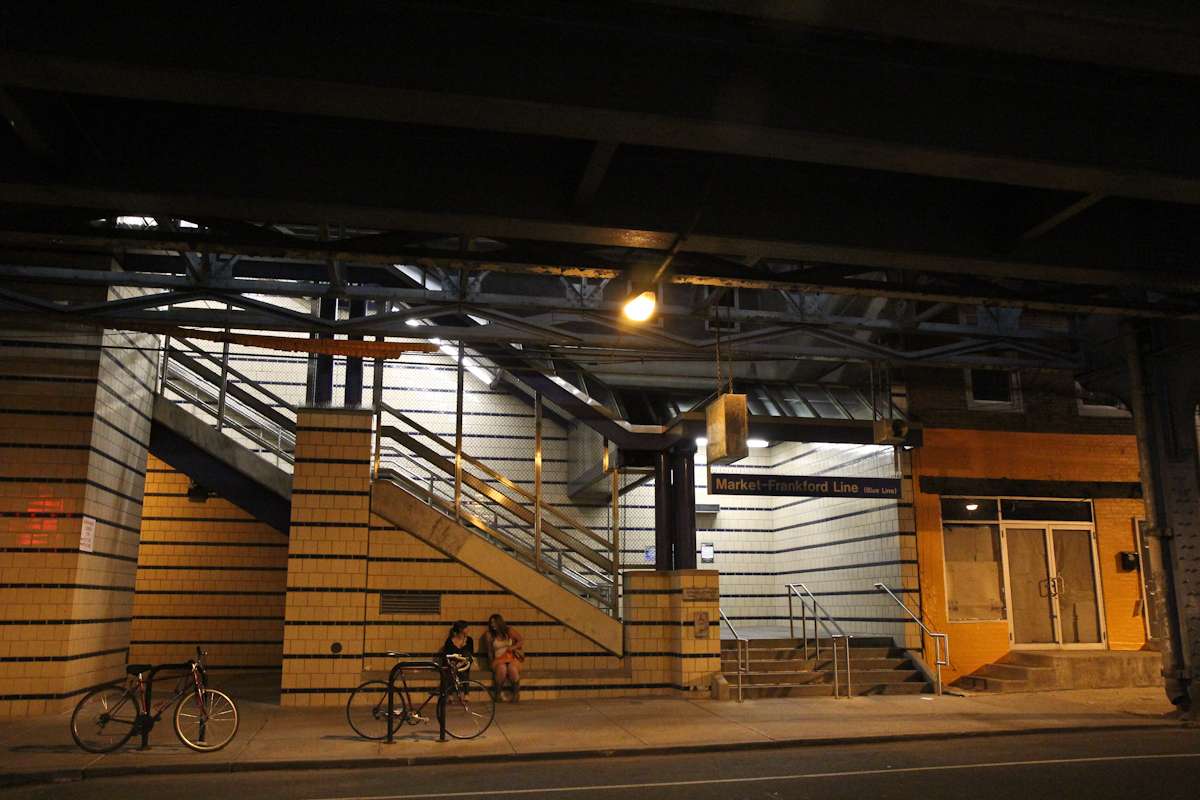
-

-
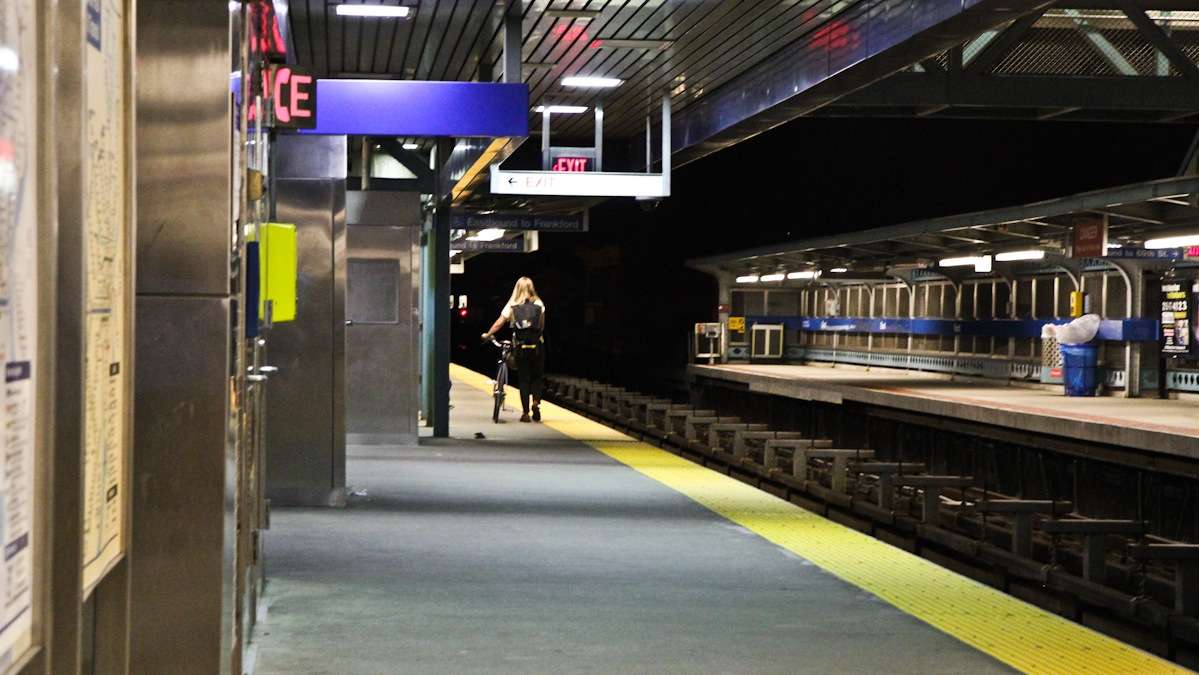
-
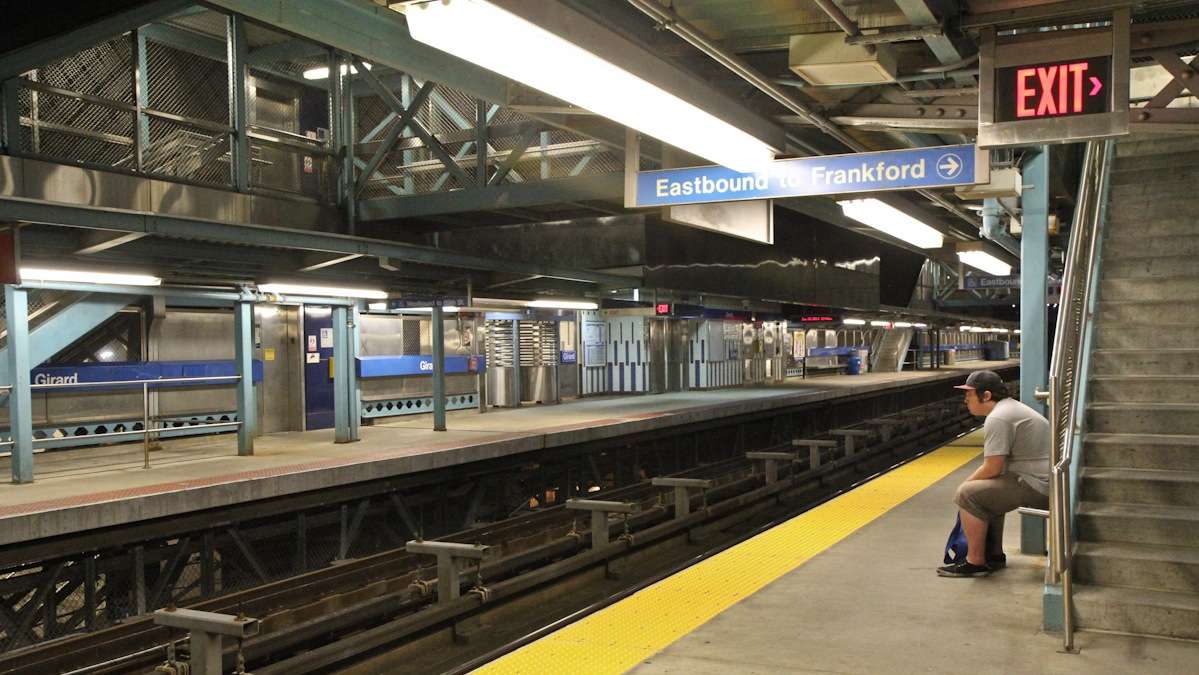
-
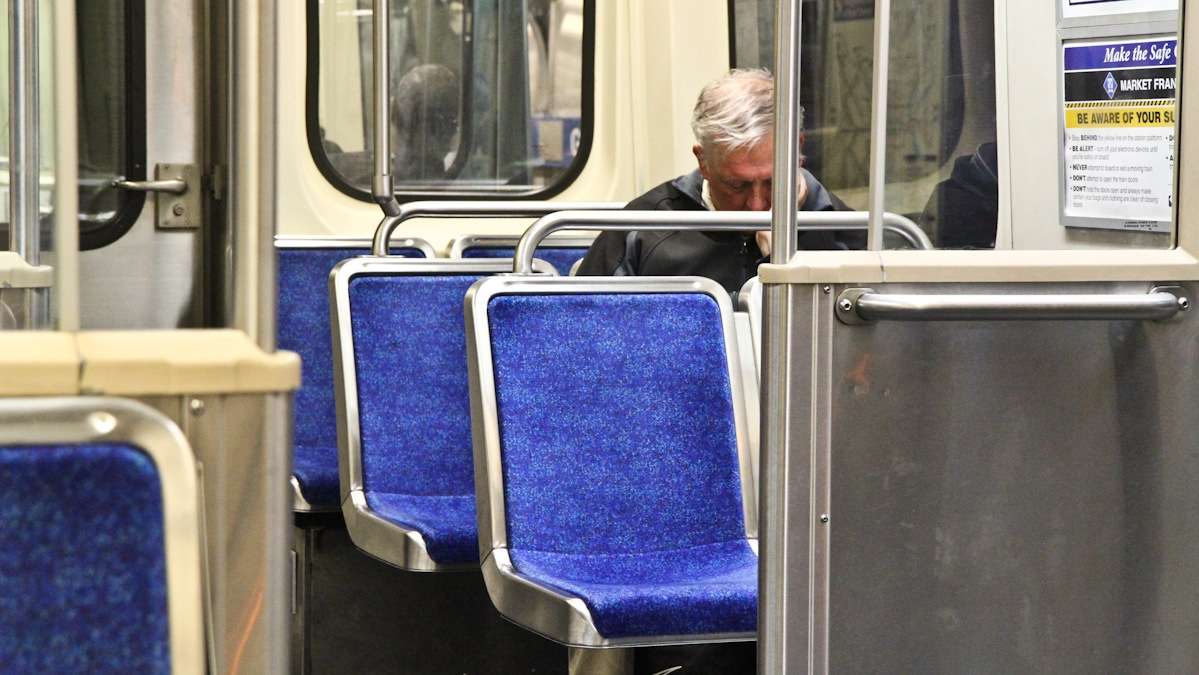
-
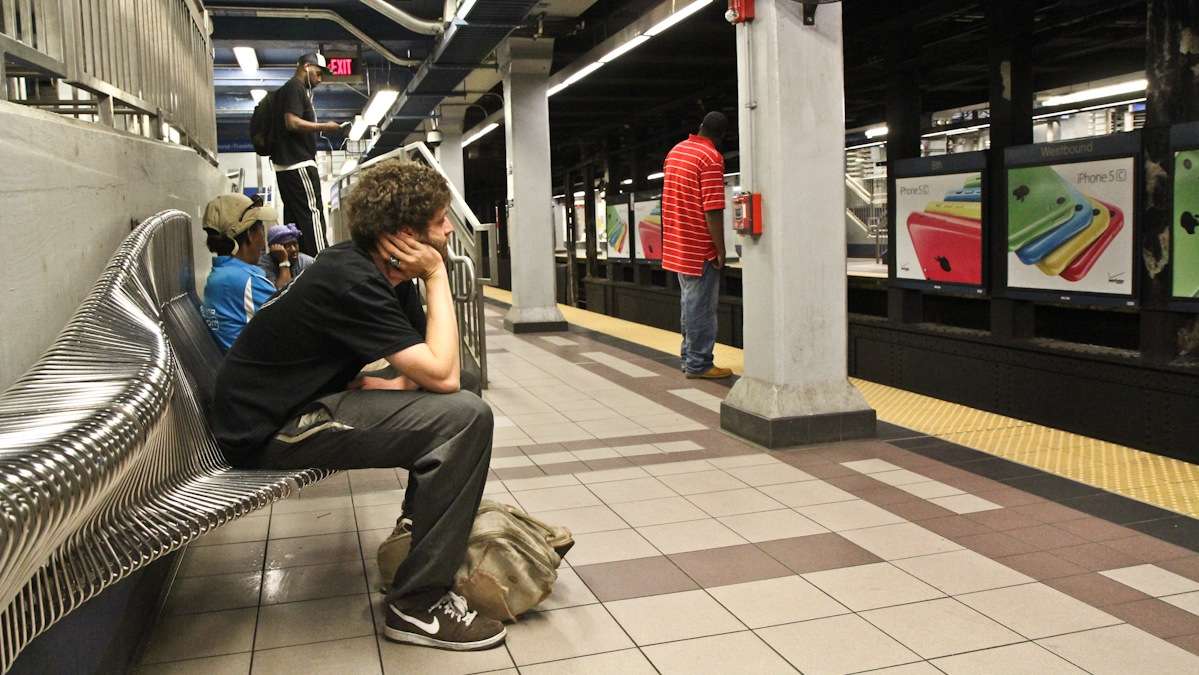
-
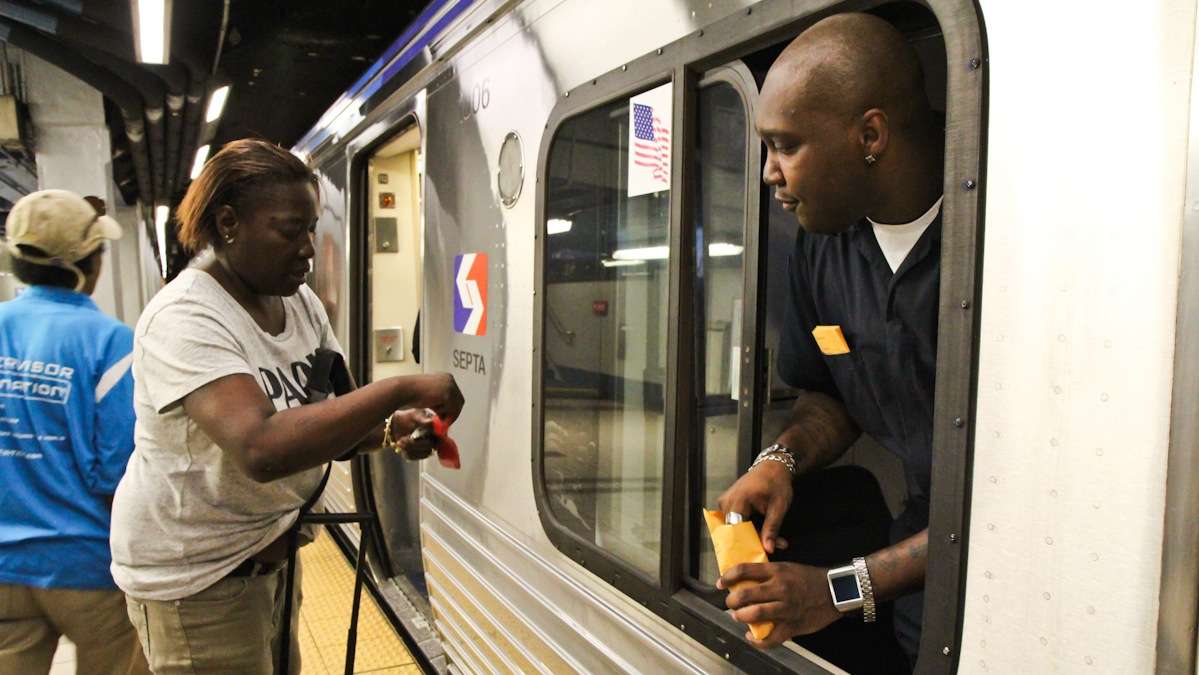
Train operator Maurice Bey collects fares at the front of the train for Nite Owl service (Kimberly Paynter/WHYY)
-
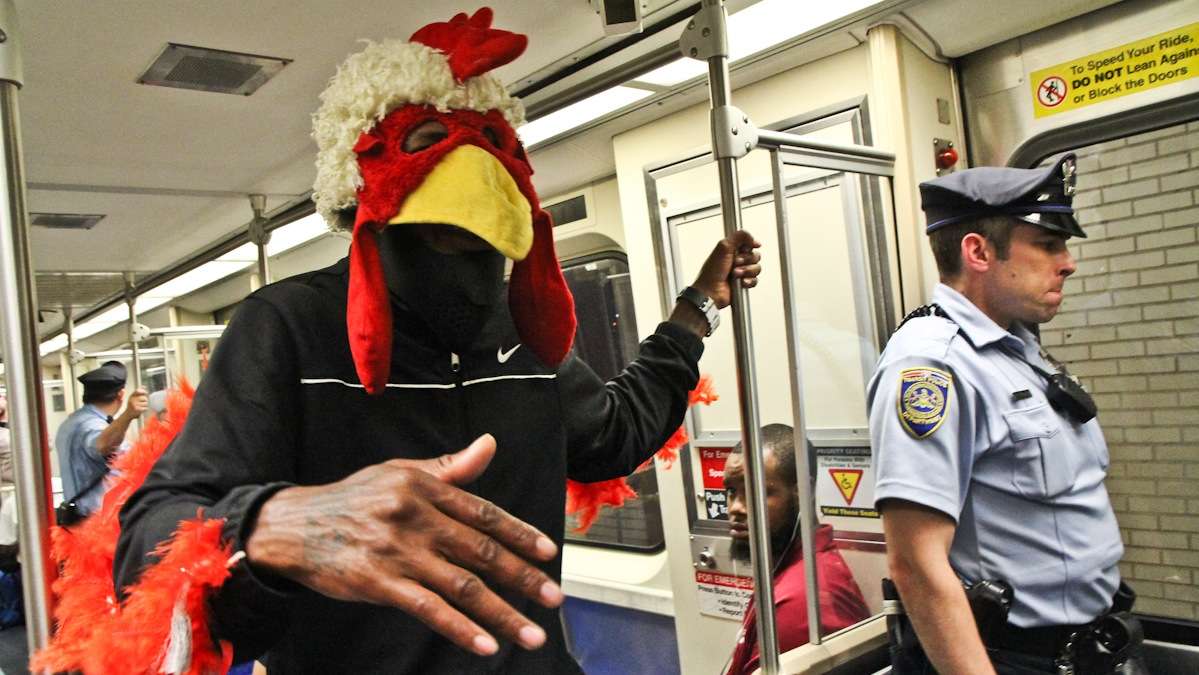
I spent much of last week at the James Logan Elementary School, participating in a week-long celebration of reading and literacy.
My wife, LaVeta, who worked with Principal Chuanika Sanders and teacher Jasmine Williams to plan the week of events, called it the Logan Literacy Carnival. In truth, the series — funded by an activities grant from the office of Councilwoman Cindy Bass — was much more than a carnival.
It was an opportunity to watch teachers do a job that requires fierce commitment. It was a chance to see administrators who understand what’s at stake for our children. It was an inside look at parents who volunteer to blunt the edge of sharp budget cuts. It was, in short, a lesson I will never forget.
Nearly 94 percent of the children at Logan are economically disadvantaged, according to data from the School District of Philadelphia. More than 17 percent of them have been classified as having disabilities. Nearly 83 percent have an individualized education plan — a document that is crafted for children who receive special education and related services.
Searching for hope
After viewing the statistics, I realized that the challenges faced by schools like Logan are not just about the district budget. They are also about poverty, and the disadvantages it creates. I saw those disadvantages up close. But I also saw hope in the place most people fail to look — I saw it in the eyes of the children.
When storyteller Mama Sandi joined with Logan students to craft a folktale, the children’s eyes lit up with opportunity.
When author Kathleen Wainwright read from her book, ‘Summer in the City,’ the students saw themselves in the story.
When Moore College of Art professor Richard Harrington taught illustration, the energy in the room was palpable.
Stories of their own
However, when I divided the children into teams, and asked them to plot their own stories, I got a glimpse of the students’ realities. The experience was both sobering and uplifting.
One group told the story of two homeless brothers playing football in order to deal with the stress of their fractured home life. The brothers got along until they realized that both wanted to play the wide receiver position. That created a conflict, because one of them would have to play quarterback so the other could catch the ball. The father saw them arguing, intervened to play quarterback, and that was how the conflict was resolved.
I won’t say here whether the story was true, but I will say it was remarkable, because it was ably told by a young man whom for the first time showed the true extent of his intellect.
Another group told the story of a young man who constantly acted out in class, and was failing as a result. As it turned out, the boy’s father was an imprisoned drug addict, and though the boy wanted to see his father, his mother wouldn’t allow it, because she knew the father was a bad influence. Eventually, the father kicked his habit, came home from jail, and the boy was able to see him. The boy’s grades improved after that.
In listening to such stories, I realized that these bright and engaged elementary school students have seen things that many adults have never experienced. They have the intestinal fortitude to survive such stories. Moreover, they can skillfully tell them.
As adults, we must believe in the capabilities of such children, and provide them with the platform they need.
Believing in opportunity
I thought of that as the children played carnival games, ate cotton candy, sipped sno-cones and crunched popcorn on the final day. I thought of that as we distributed books to each of the school’s 300 students.
I hope the books help address the fact that students can lose months of instruction if they don’t read over the summer break. I hope the books can help to close the summer learning opportunity gap that plagues diadvantaged students. But more than that, I hope the books remind the students of their own power to tell stories.
That, says Logan Principal Chaunika Sanders, is what books should be able to do.
“I think children need to develop an appreciation for reading,” Sanders told me in an interview. “And if you think about what children are exposed to now, there are limited opportunities for children to sit down and read with books in their hands because everything is done so quickly. I think that doing this literacy workshop for students is really going to be an eye opener to engage them in learning not only to read, but also to tell their own stories and to be able to share those stories. It’s a great opportunity for our children.”
It’s an opportunity I was proud to watch them grasp.
Learn more about the author at Solomon Jones’s website.
WHYY is your source for fact-based, in-depth journalism and information. As a nonprofit organization, we rely on financial support from readers like you. Please give today.


